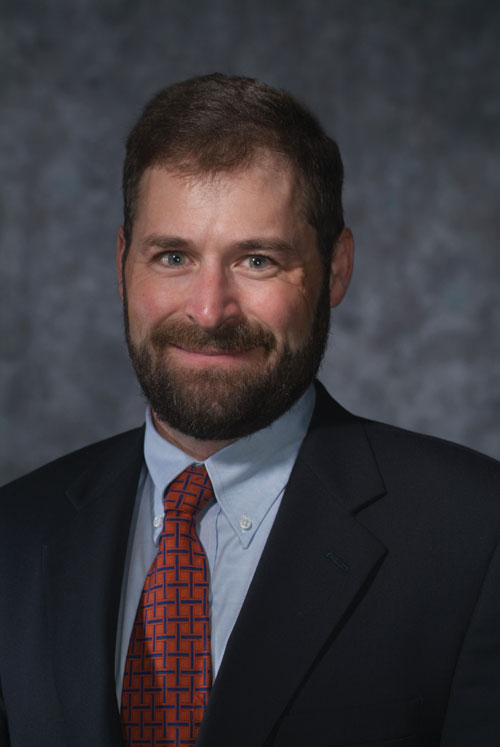Voucher Study Focuses on High School Graduation
FAYETTEVILLE, Ark. – More students who used vouchers in a Washington, D.C., program to attend private schools graduated from high school than students in public schools who did not receive the vouchers, according to a University of Arkansas researcher.
The difference was 82 percent of those offered vouchers graduated from high school compared to 70 percent of those not offered vouchers, according to a study published in the Journal of Policy Analysis and Management. Since some voucher recipients decided not to use their voucher, using a D.C. voucher was determined to increase a student’s likelihood of graduating by 21 percentage points, from 70 to 91 percent.
The article’s lead author, Patrick Wolf, holds the Twenty-First Century Chair in School Choice at the University of Arkansas. He directs the School Choice Demonstration Project that conducted a six-year evaluation of the Opportunity Scholarship Program in Washington. One of Wolf’s co-authors is Brian Kisida, a research associate in the department of education reform in the College of Education and Health Professions.
The federally funded voucher program began in 2004 and was re-authorized in 2011. Between 2004 and 2009, the years studied by the researchers, nearly 8,500 students applied to the school choice program and nearly 3,000 used a voucher. The vouchers were worth up to $7,500 and could be used at any of more than 70 private schools. The researchers were able to apply the “gold standard” evaluation method of a randomized experiment because more students applied to the voucher program than could be accepted and a lottery was used to award the vouchers.
Wolf’s team also found evidence that the program had a positive impact on reading achievement but no evidence that it affected math achievement. Educational attainment – graduating from high school, in this case – is an important issue that is understudied, he said.
“There are a couple of reasons why we focused on educational attainment,” Wolf said. “First, attainment is arguably more important than test scores because of the benefits not only to individuals, but also to society in lower unemployment, lower crime and growth in personal income and savings that come from more schooling. Second, nobody has systematically examined the effect of private schools on educational attainment. Researchers who have studied it before have had very limited data. We had better data and stronger methodology.”
Wolf and his team are taking on a new project now that they have finished evaluating voucher programs in Washington and Milwaukee. They will next study a statewide voucher program Louisiana is starting. That research may provide some answers to how voucher programs work in rural areas. The six projects Wolf has been involved with during his career were all based in urban areas.
“It’s an exciting area in which to be doing research,” he said. “The study of vouchers is very relevant to educational policy today. A lot of states and municipalities are interested in voucher programs, including Arkansas where two voucher bills were proposed in the legislative session now under way.”
Assigning students to treatment and control groups in the D.C. program presented a unique challenge to Wolf’s team, he said.
“In D.C., the law mandated that students be awarded scholarships by lottery if the program was over-subscribed, but it also said that certain students had to be given priority for awards,” he said. “We had to figure out how to do that and end up with similar treatment and control groups.”
The team randomly selected students within the priority groups and treated each group as a separate experiment. The method allowed them to have comparable groups assigned randomly under the law’s guidelines.
“I’ve come to understand that school choice is very complex,” Wolf said. “It involves elements of parental information, parental motivation, support of private schools and a willingness by those schools to accommodate students who don’t meet the typical profile of their student population.
“Still, wherever voucher programs have been studied carefully,” he concluded, “they have demonstrated at least some positive effects.”
Contacts
Patrick Wolf, Twenty-First Century Chair in School Choice
College of Education and Health Professions
479-575-2084,
pwolf@uark.edu
Heidi Wells, content writer and strategist
Global Campus
479-879-8760,
heidiw@uark.edu
Headlines
Affairs of the Heart
Find out how biomedical engineering professor Morten Jensen is developing innovative devices to produce better outcomes in cardiovascular medicine.
Students, Faculty and Alumni Kick Off Centennial Year of School of Law
Founded April 14, 1924, the School of Law faculty, students and alumni started the celebration of its centennial year with a Founders Day event and will continue with more commemorative events this coming fall.
Yearly Academic Award Winners, Ambassadors Recognized by Bumpers College
Schyler Angell, Lexi Dilbeck, Cason Frisby, Tanner Austin King, Anna Brooke Mathis, Carrie Ortel, Lucy Scholma, Kadence Trosper and student ambassadors were honored at the college's annual reception.
World Premiere of 'Cries from the Cotton Field' Slated for May 8
Cries from the Cotton Field chronicles the journey of 19th century Italian immigrants from northern Italy to the Arkansas Delta and ultimately to Tontitown. It will premier at 6 p.m. May 8 in Springdale Har-Ber High School.
Fay Jones School's Earth Day Event Spotlights Sustainable Materials and Projects
"One day doesn't seem like a lot, but one day can empower individuals and groups, energize them to work for change and innovate for transformative solutions," professor Jennifer Webb said of the students' design work.





